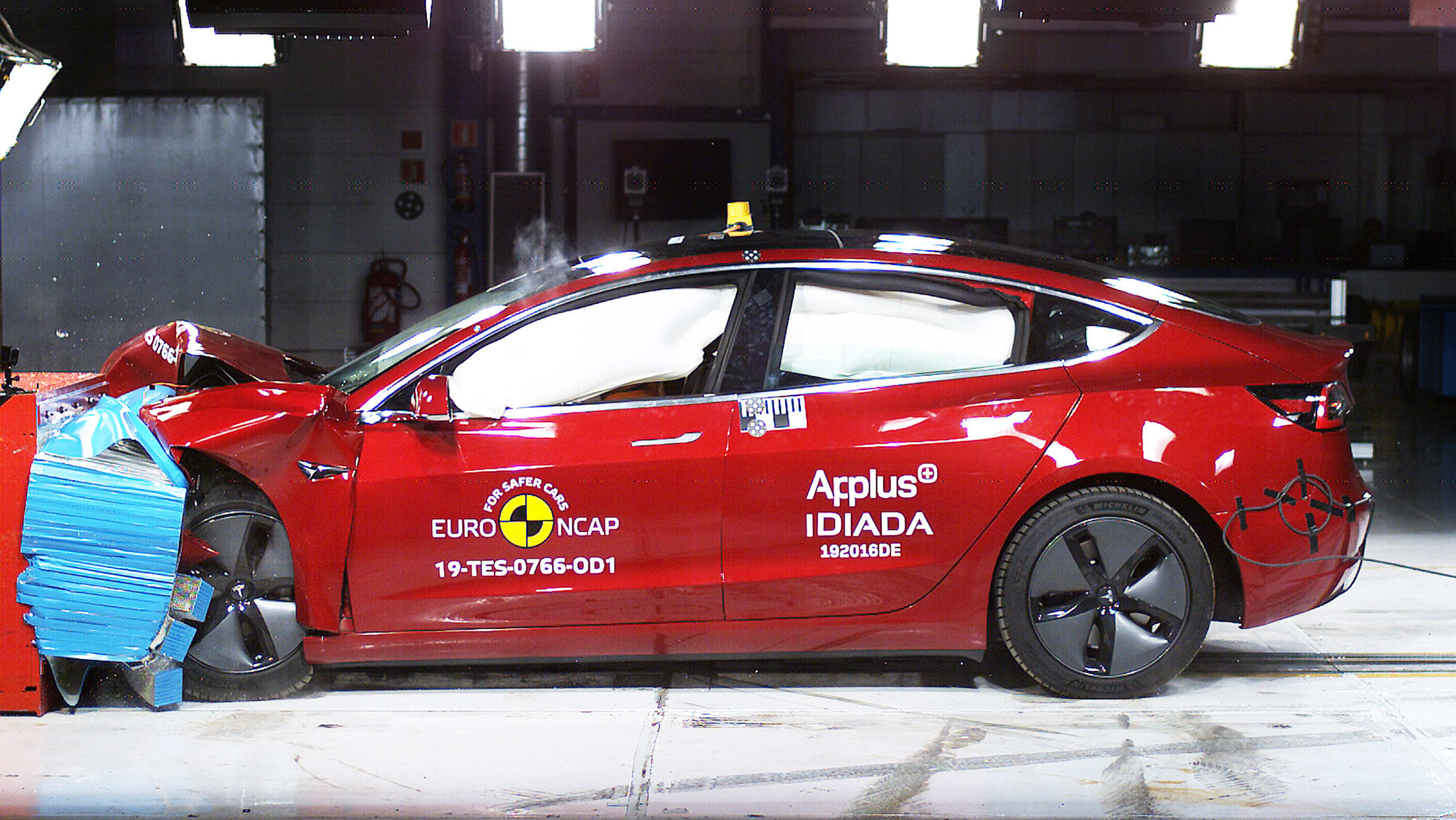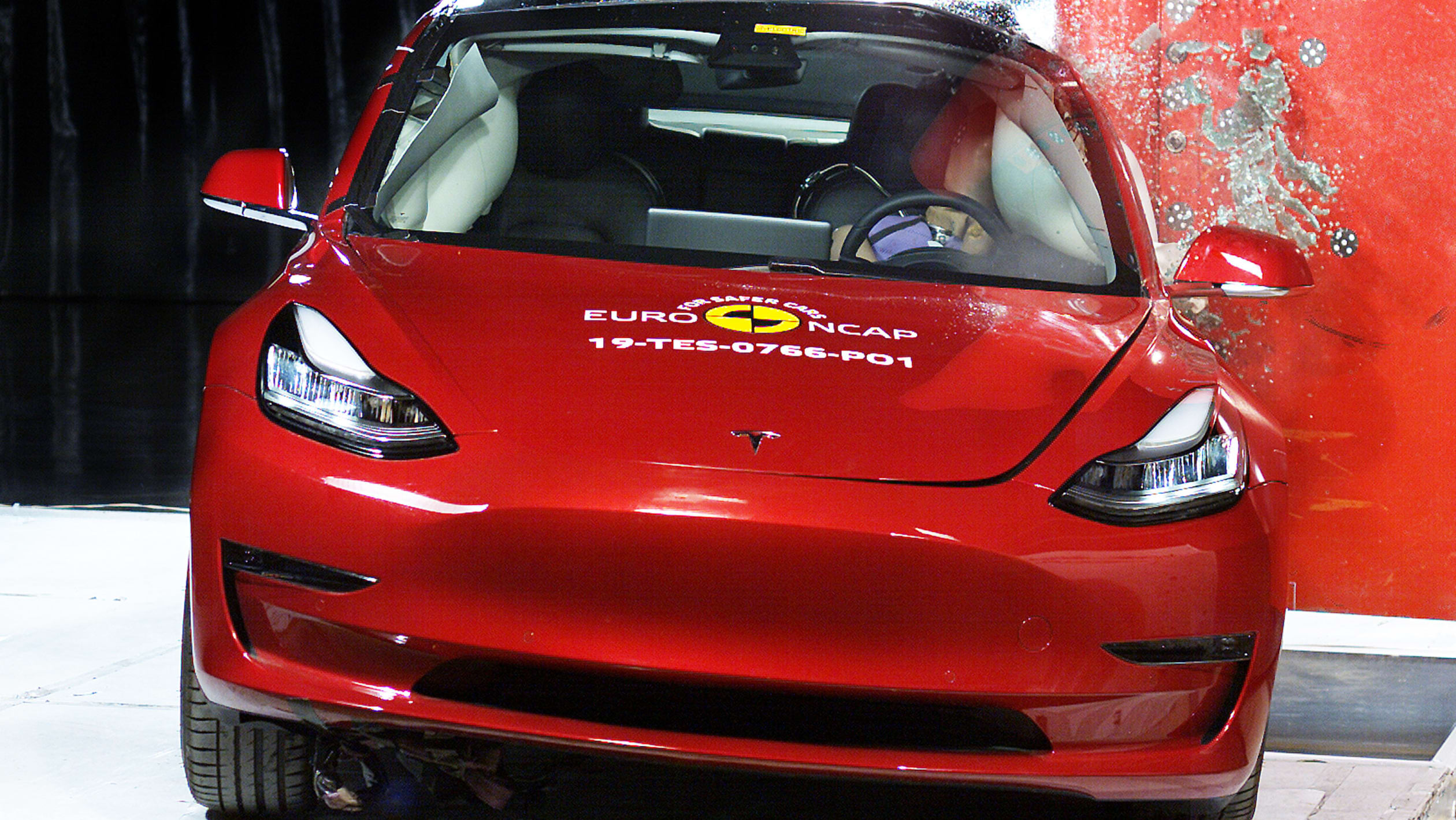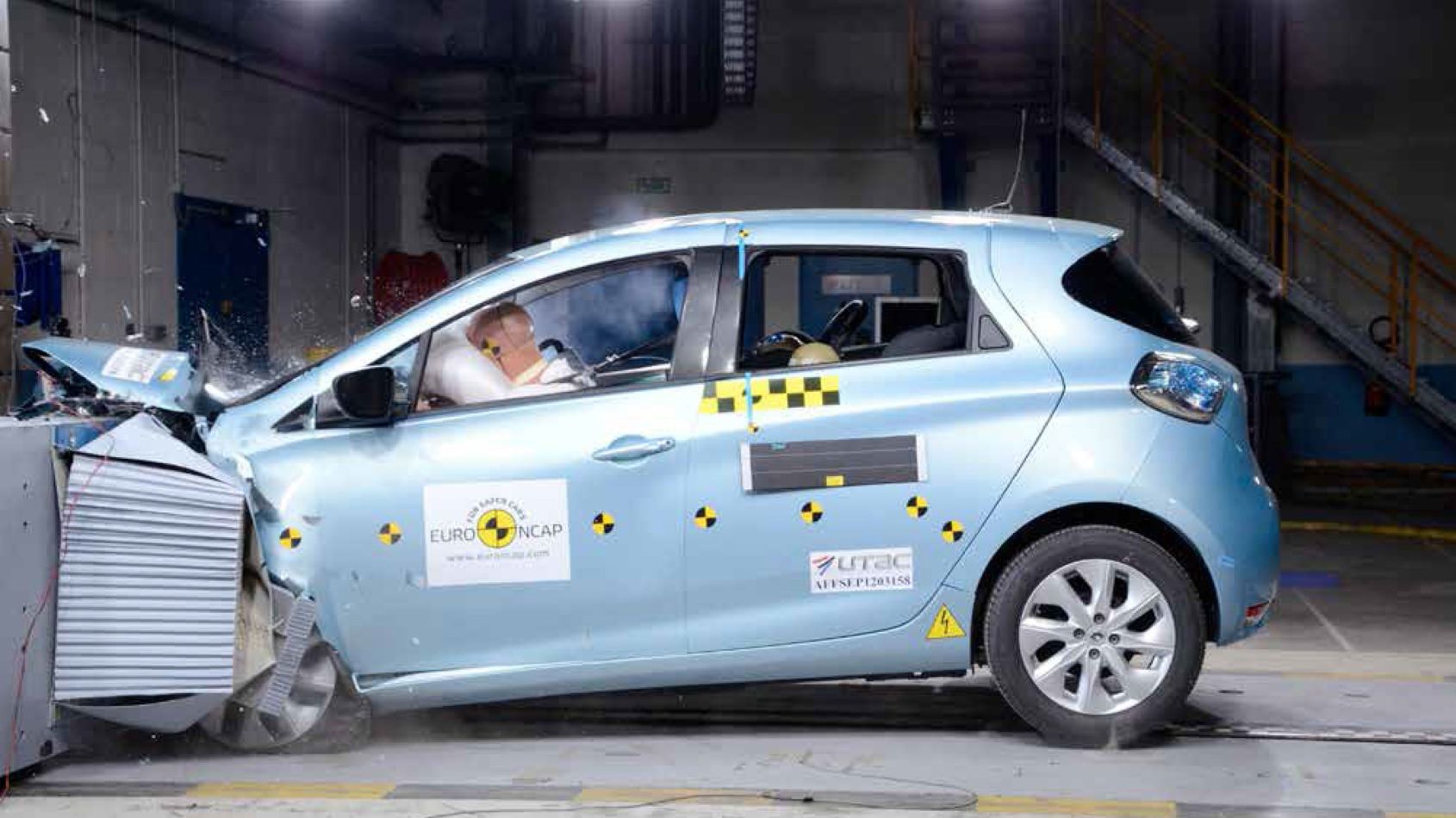 What happens to an EV if it is in a crash and is there anything to be worried about, like the batteries catching fire?
What happens to an EV if it is in a crash and is there anything to be worried about, like the batteries catching fire?
While most road accidents are minor bumps and scrapes, there’s no getting away from the fact that more serious prangs are a daily occurrence.
Thankfully, the newest vehicles – both electric or otherwise – feature a wealth of safety aids and driver assistance systems to help prevent collisions. Some of those systems that you’ll find in new cars today include autonomous emergency braking (AEB), lane-keeping assistance and traffic sign recognition.
When it comes to electric cars in particular, Tesla is known for its semi-autonomous driving system dubbed ‘Autopilot’, while brands like Volvo are developing LiDAR technology for its EVs that uses laser light to scan the road ahead and detect objects up to motorway speeds, during the day and at night.
Despite these advancements it’ll be decades before the roads get close to being entirely crash-free – if ever – so with that in mind, we wanted to lay out everything we know about how safe electric cars are and what happens if an EV is involved in an accident.
Search the internet for electric-car crashes and you may find examples of electric vehicles that have caught fire, however, the reality is very different: electric cars are just as safe as petrols and diesels, and outbreaks of fire are exceedingly rare.
 How safe are electric cars?
How safe are electric cars?
When measuring both occupant and pedestrian safety, the overriding authority on the subject is the Euro NCAP (the European New Car Assessment Programme). This is an independent vehicle safety body that oversees official crash-testing of new cars. Most electric and hybrid cars on sale today have received the top, five-star, rating from Euro NCAP. For example, the Renault ZOE, Nissan Leaf, Tesla Model S, Hyundai Ioniq Electric and Mitsubishi Outlander PHEV all received five-star ratings.
What this means is that, in the event of an accident, they protect both occupants and pedestrians extremely well, and feature technology that aims to prevent collisions from happening at all. As well as AEB, lane-keep assistance, blind-spot monitoring and speed-limit recognition systems are all becoming more and more common.
 Can electric cars catch fire? What happens to electric-car batteries in a crash?
Can electric cars catch fire? What happens to electric-car batteries in a crash?
Yes, they can. Just like petrol and diesel cars, electric vehicles carry a small risk of catching fire. However, while the petrol in a normal car requires a spark or flame to ignite, the lithium-ion batteries on board electric vehicles do not. Although manufacturers and battery makers have made huge strides in improving vehicle safety, a violent crash in an electric vehicle can still result in the car catching fire. This can happen if the battery short circuits and heats up. Lithium-ion batteries are susceptible to heat and if they warm up too much, they can ignite.
If one cell catches fire, there can be a chain reaction within the whole battery resulting in the vehicle catching fire. However, it must be stressed that manufacturers have made huge strides in ensuring this doesn’t happen. Manufacturers like Tesla and Nissan have built in fail-safe circuitry that shuts down the battery when its voltage increases beyond safe limits.
Manufacturers have also provided guidance for emergency crews on how to handle electric and hybrid vehicle fires. They highlight areas that can be cut and areas that cannot, with the latter including areas that have high voltage wires running through them.




 What happens to an EV if it is in a crash and is there anything to be worried about, like the batteries catching fire?
What happens to an EV if it is in a crash and is there anything to be worried about, like the batteries catching fire? How safe are electric cars?
How safe are electric cars? Can electric cars catch fire? What happens to electric-car batteries in a crash?
Can electric cars catch fire? What happens to electric-car batteries in a crash?